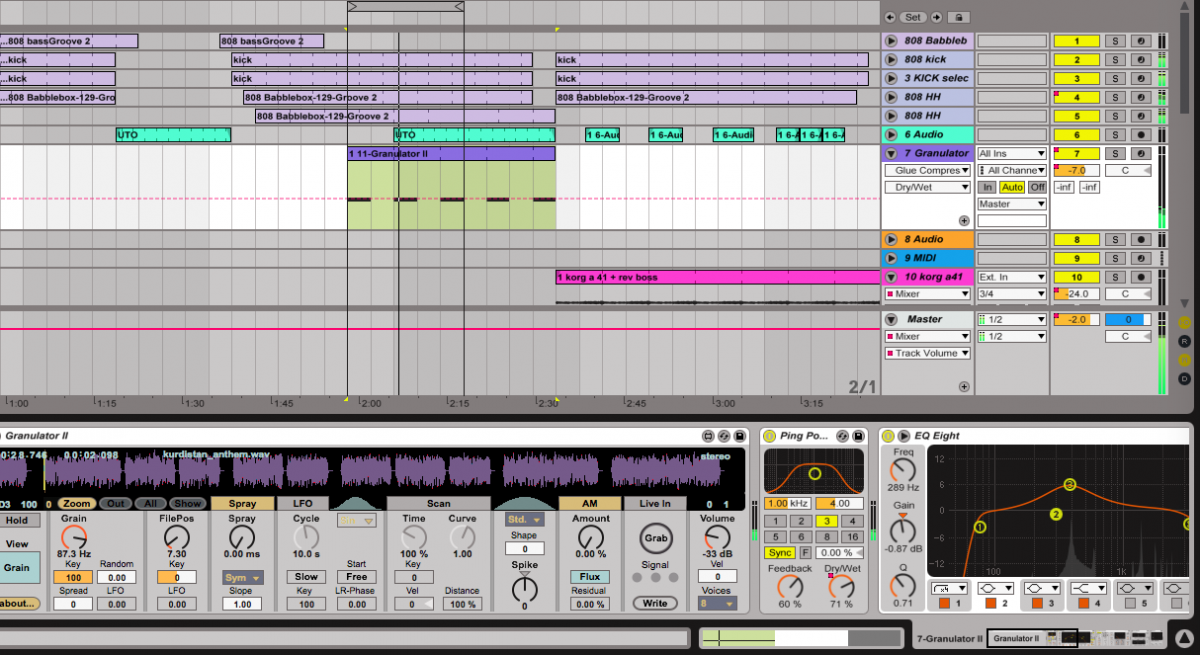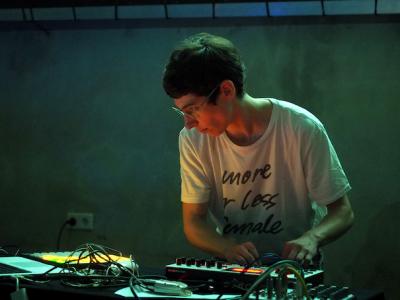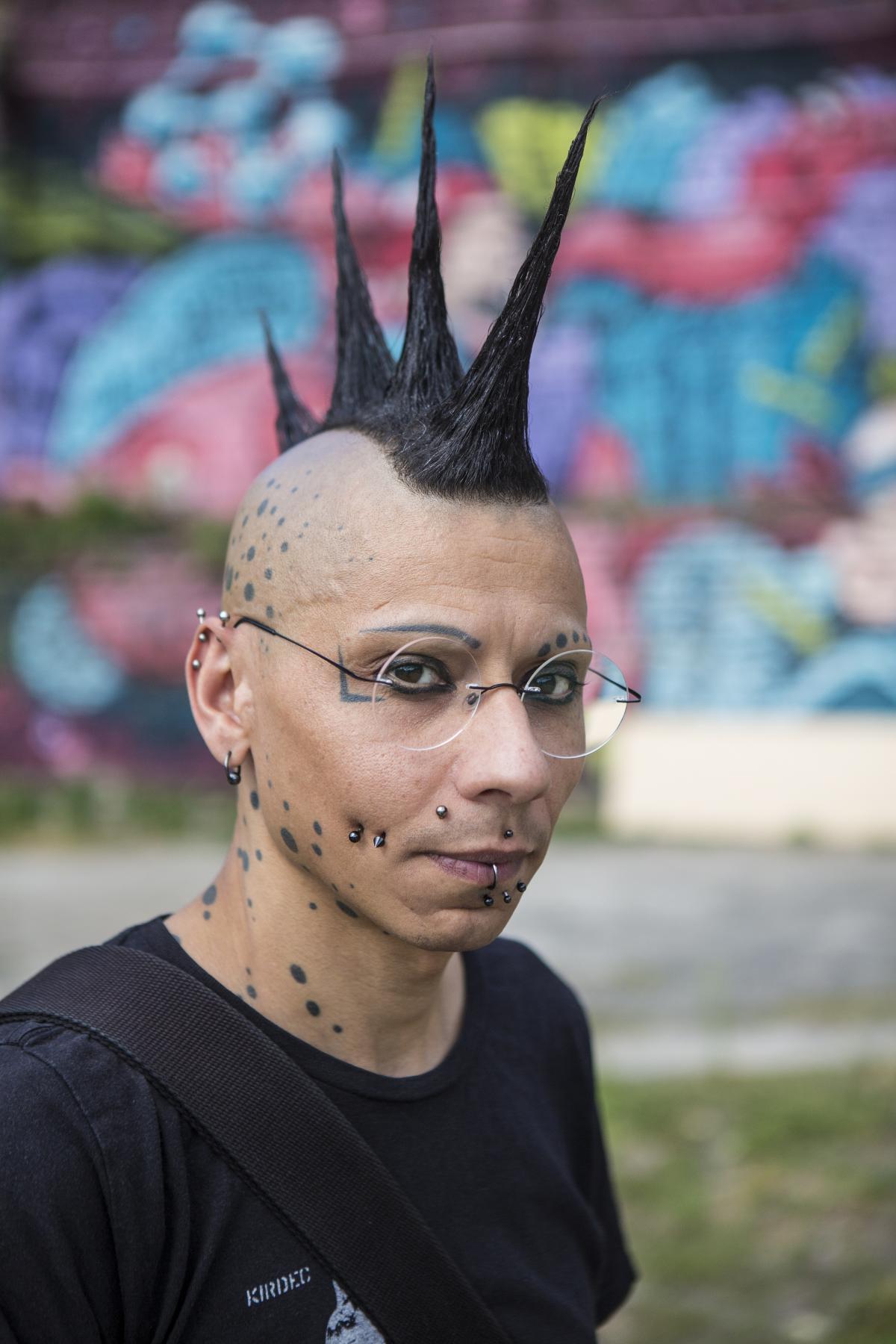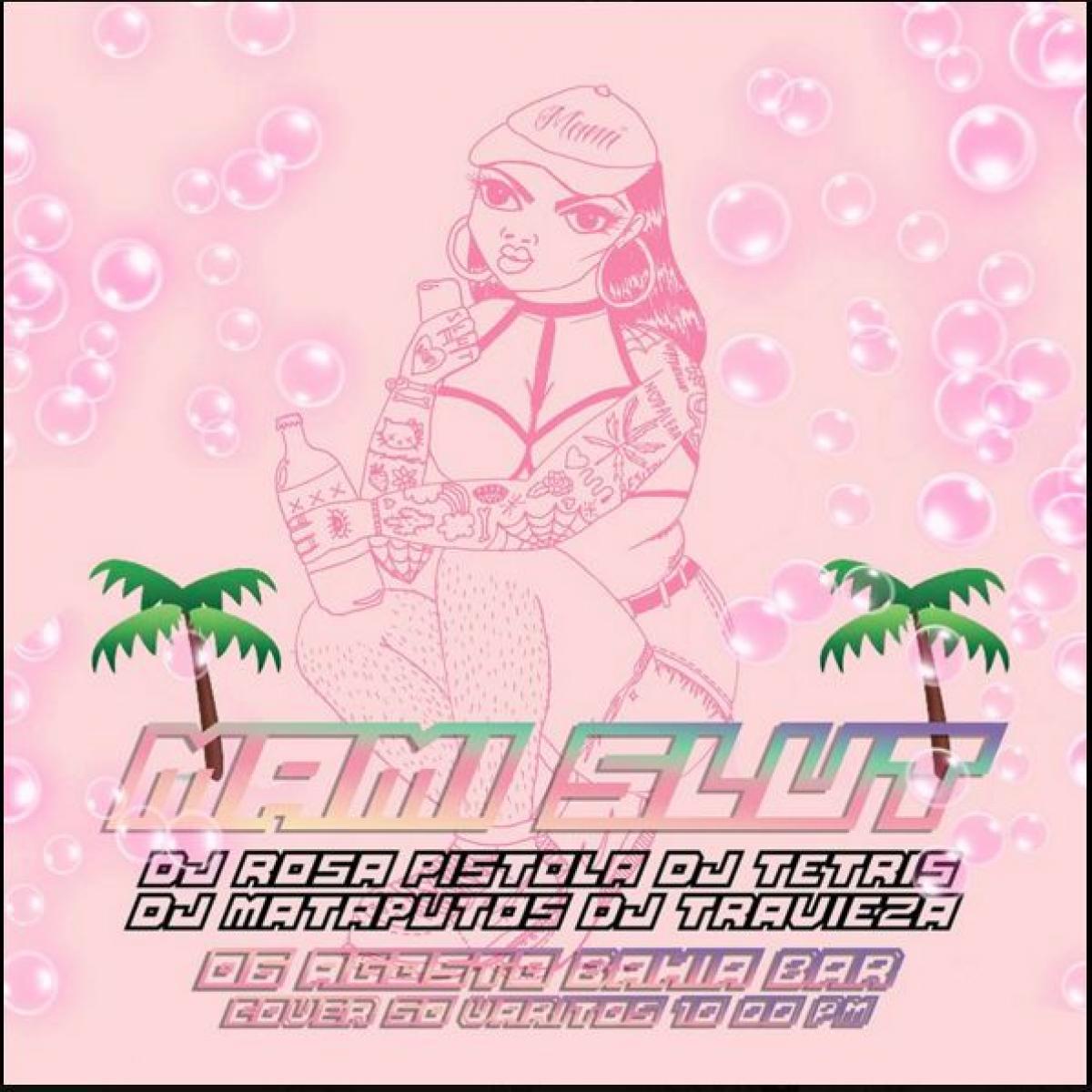
Queer Fightback: Reggaetón Underground
Music scenes can serve as safe spaces for marginalized groups. In Mexico, reggaetón underground parties are an important home for the country's LGBTIQA+ community to express their discontent against a sexist society and lack of female empowerment.
Mexico City is the sixth worst city for women: every day seven women are murdered, 66% of the female population has suffered emotional, physical, or sexual violence. This misogyny is also reflected in the music culture: Reggaetón for example has been nurturing the objectification of women for a long time.
In this hostile context, the need for safe spaces for the LGBTIQA+ community as well as more empowering speeches is urgent and requires grassroot political action. Some youngsters have taken this matter into their own hands through music. With digital music production and a strong DIY ethos, Reggaetón has been subverted – until a new subgenre was born: reggaetón underground. A part of this defines itself as LGBTIQA+ friendly and includes speeches about women empowerment, feminism, and intersectionality.
Reggaetón underground has become more and more influential in Mexico City, not just through the music and its videos, but through parties and their visual representations. Their common interest is dancing perreo reggaetón – the typical highly sexual dance style – in a safe environment while also spreading statements about sexual repression that encourage women to enjoy the night without being harassed and to return home safe.
Video not available anymore.
Several parties came along with a focus on supporting female musicians in a mostly male dominated music scene. In 2014 «Mami Slut» started and focused mainly on the LGBTIQA+ community. The series promoted intersectional feminism by providing spaces free of violence or phobias, that embrace body diversity, and see dance as a resistant and political act. Their party flyers draw on imagery quite unlike the images of female bodies normally celebrated in the music industry; the flyers are an example of how the scene’s identity and political stances have strengthened.
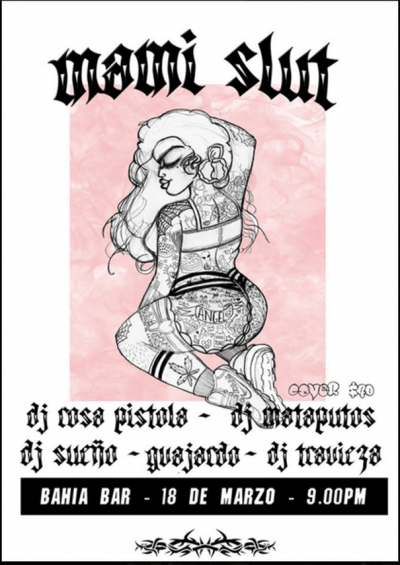
Another example is «Perreo Millenial», which promotes international underground reggaetón musicians like Tomasa del Real or Ms. Nina. They are also essential in understanding the feminism of this subgenre, as both of them promote sex positive ideas and a – party – weed smoker nightlife style. The graphic design never objectifies women or uses any symbols suggesting it.
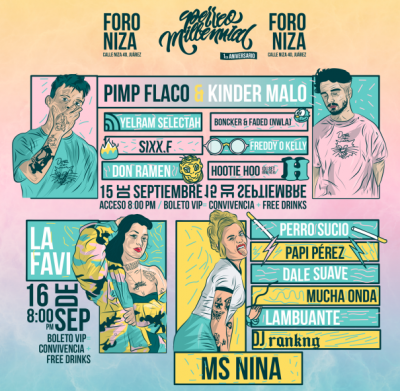
In the same line of Tomasa del Real or Ms. Nina is the duo T.Y., produced by Brun OG, a young Reggaetón entrepreneur. They both come from dangerous neighbourhoods in Mexico City, in which the general idea of youngsters is to solve problems with violence. The duo doesn’t deny this, but rather than make it an obligatory focus in their music, instead they talk about sex, weed, and dance, focussing mainly on female partners.
Reggaetón underground has played an important role in shaping a new strong musical scene in Mexico City that is represented by design, urban spaces, and fashion. Its social statements are an important alternative for youngsters that usually consume violent reggaetón.
Biography
Published on August 22, 2018
Last updated on April 11, 2024
